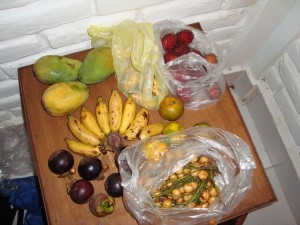The Australian Association for Jewish Studies conference took place in Adelaide this past Sunday, Monday, and Tuesday. Academics from around Australia and the world gathered to listen to, and share ideas on the subject of ‘Jews, Judaism and Hybridity.’
Some of the topics included were, ‘The Hebrew Bible and Hybridity,’ ‘Yiddish and Hybridity,’ and ‘Hybridity in the Diaspora.’ The session I enjoyed most was ‘Jews and China,’ with Mobo Gao as convener. Felix Patrikeeff, spoke on ‘The Jewish Communities, China and Australia, 1924-1969.’ Deborah Cao, presented on, ‘Popular Perceptions of Jews and Jewish Culture in Contemporary China.’
Many things about China have always fascinated me, and more recently is the Chinese attitude and understanding of the Jews. As Deborah Cao illustrated, how many Chinese believe that the Jews are smart and good at business. She drew many parallels between Jews and Chinese emphasizing similarities like, the importance of family, preserving culture, and respect for elders. Cao showed images of some of the books circulating the Chinese market, with titles like, ‘Talmudic Wisdom,’ ‘How to Raise your Children the Jewish way,’ and ‘Jewish Business Secrets.’
The most recent book Cao has written is about animal rights and the attitude and treatment of animals in China. This is one of the strong differences between Chinese and Jews. Any form of cruelty to animals is strictly prohibited in Judaism, where as in China it is often a non-issue. She hopes through her book and blog to educate Chinese people more in this area.
Another session I found interesting was, a session on Hybridity Among German Jews chaired by Lynn Arnold. Michael Abrahams-Sprod, presented ‘From Symbiosis to Racial Pollution: the Cases of Rassenschande (Racial Defilement) in Nazi Magdeburg.’ One thing I learned was how well organized the Germans were in their anti Semitism. Every step was calculated. On a few occasions in Rassenschande the people there thought to take their anti Semitism a few steps further than had been mandated by the central government office. They were reprimanded and ordered to fix the situations.
There were many more wonderful talks and some I’m still trying to figure out what the speaker was talking about. I find that when politicians speak, I realize they have said nothing, and when academics speak, I realize they have said a lot but I’m not sure what?
Overall it was a nice three days and I enjoyed the opportunity to meet other Jews and non Jews who are involved in, and or interested in Jewish education.
Read More


















